© 2014-


Radio Caroline - History (3)
Coincidentally also on 7th April Postmaster General Reginald Bevins told the House o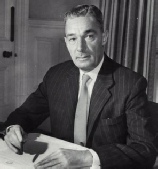 f Commons that a number of actions were being planned by the Government against Radio Caroline, including if necessary jamming the station's signal. He also assured the House that advertisers had agreed to boycott Radio Caroline, that the respective record and music industry associations were co-
f Commons that a number of actions were being planned by the Government against Radio Caroline, including if necessary jamming the station's signal. He also assured the House that advertisers had agreed to boycott Radio Caroline, that the respective record and music industry associations were co-
Various authorities made life as difficult as possible for those operating Radio Caroline and subsequent offshore radio stations. Crew and supplies travelling to and from the radio ships were required to undergo Customs clearance and inspections by immigration, Trinity House, port health authorities, the Board of Trade and local harbour authorities
However, the nearest any official body came to attempting direct intervention in the early maritime operation of Radio Caroline occurred on 6th May 1964 when, the Royal Navy vessel HMS Venturous came alongside the MV Caroline and requested permission to board the ship to inspect her bonded stores.
Permission was refused by the Captain of the Caroline on the basis that it was a foreign-
Listeners to Radio Caroline were kept fully informed of this incident by DJ Simon Dee through live newsflashes interrupting normal programmes. This high profile publicity probably deterred the Navy and HM Customs from taking any action to board the Caroline by force. The Government preferred to await international action to outlaw offshore broadcasters as the Postmaster General informed the House of Commons on 2nd June 1964.
Outside the Government various organisations and authorities also made threatening noises against Radio Caroline. In April 1964 Phonographic Performances Ltd. (who collected copyright fees for any public performances of their members' recorded works) threatened to issue a writ against Radio Caroline to prevent the station 'stealing' copyright material. Although Radio Caroline (and some later stations) did offer to pay copyright fees, Phonographic Performances was in a difficult position -
In another case of dual standards, major record companies adopted both a public and a private attitude to the offshore broadcasters. Publicly they refused to co-
Advertisers also were at first reluctant to buy airtime, preferring to wait and see what the station sounded like, the size of audience it attracted and more importantly, what, if any, official action would be taken against it or anyone who was seen to be supporting it commercially.
During the early months of Radio Caroline's transmissions the station's programmes consisted of DJs announcements and, of course, music all day -
The programme content in those early days was a blend of pop music mixed with established 'middle of the road' material. But, even though many of the early programmes were pre-
In response to g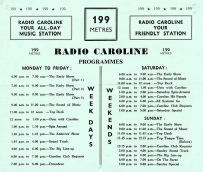 rowing audience demand Radio Caroline soon increased its airtime from the initial twelve hours a day and continued broadcasting until 10.00pm each night. This was subsequently modified to 8.00pm because of poor night time reception caused by interference from continental stations. Later Radio Caroline started to reopen again on Saturday and Sunday mornings at five minutes past midnight (when the continental stations had closed) and stayed on the air until 3.00am with late night party music.
rowing audience demand Radio Caroline soon increased its airtime from the initial twelve hours a day and continued broadcasting until 10.00pm each night. This was subsequently modified to 8.00pm because of poor night time reception caused by interference from continental stations. Later Radio Caroline started to reopen again on Saturday and Sunday mornings at five minutes past midnight (when the continental stations had closed) and stayed on the air until 3.00am with late night party music.
Radio Caroline’s landbased operation was initially located in Jocelyn Stevens’ Queen magazine offices in Fetter Lane, London with the airtime sales team operating from rented rooms in 54/62 Regent Street, London. But, with the enormous success of the station more permanent accommodation was clearly needed. Additionally Jocelyn Stevens became uneasy about the presence of Radio Caroline in his offices after a writ was delivered there from music copyright agents claiming the offshore station was in breach of copyright laws.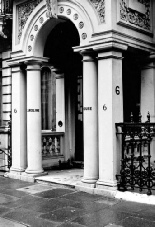
Eventually a new headquarters was found -

Early station ID, Jenny Conway

News Report about HMS Venturous, Simon Dee , 6th May 1964

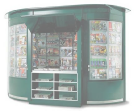

Click on picture to enlarge
An early Radio Caroline programme schedule showing hours of broadcasting increased to 8.00pm
An early example of Radio Caroline’s programming with Simon Dee (live) introducing Carl Conway (on tape) and interrupting with a station ID and time check. Note the varied mix of music played at that time -

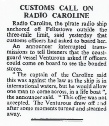
The Times
7th May 1964

Daily Telegraph April 1964

Daily Mirror
1st April 1964

History
Key Dates
Ship and Location
Technical
Staff
Programmes





Treasure Chest

Reginald Bevins MP, who was Postmaster General at the time of Radio Caroline’s arrival
6 Chesterfield Gardens -
Click image to enlarge





Back to Britain Gallery


Back to Radio Caroline